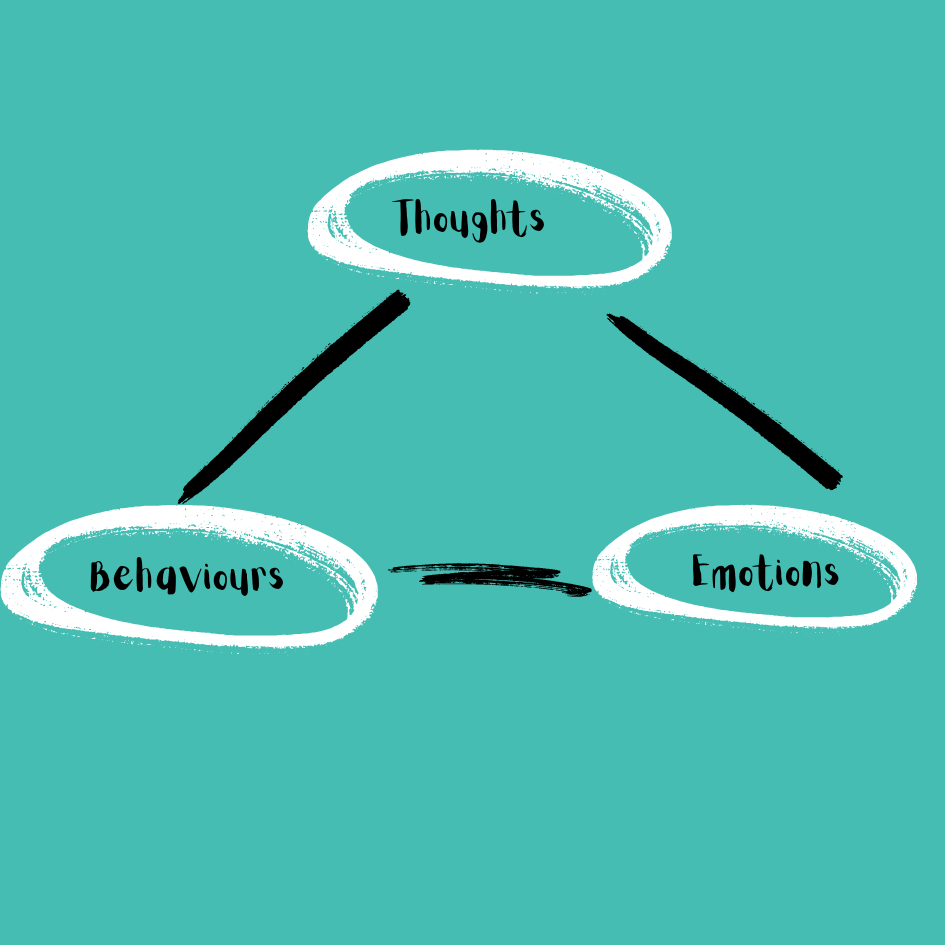ADHD Screening Assessments for adults
Attention-Deficit/Hyperactivity Disorder (ADHD) is a condition often associated with children, but it is increasingly recognised as a significant issue in adults as well. This page will explore the nature of ADHD, its symptoms, why adults seek ADHD Screening Assessments, the diagnostic process, and the subsequent treatment and management.
What is ADHD?
Attention-Deficit/Hyperactivity Disorder (ADHD) is a neurodevelopmental disorder characterised by inattention, impulsivity and sometimes hyperactive behaviour. These behaviours can interfere significantly with daily functioning and quality of life. While ADHD is often diagnosed in childhood, many individuals carry the symptoms into adulthood. In adults, ADHD may manifest differently, primarily affecting work performance, relationships, and overall life management.
ADHD manifests in three primary types: Inattentive, Hyperactive-Impulsive, and Combined.
Inattentive ADHD is characterised by difficulties in sustaining attention, following instructions, and organisation, often leading to careless mistakes and forgetfulness.
Hyperactive-Impulsive ADHD involves excessive fidgeting, restlessness, and impulsivity, resulting in disruptive behaviours and difficulty remaining seated or quiet.
Combined ADHD includes symptoms from both inattentive and hyperactive-impulsive types, presenting a broader range of challenges. Individuals with Combined ADHD experience both inattention and hyperactivity/impulsivity, which can significantly impact their daily functioning and interactions.
Understanding these types is crucial for tailored interventions and support.
Symptoms of ADHD
ADHD symptoms in adults can be broadly categorised into two types: inattention and hyperactivity-impulsivity.
Inattention:
– Difficulty sustaining attention in tasks or play activities.
– Trouble following through on instructions and finishing tasks.
– Poor organisational skills.
– Frequent careless mistakes.
– Avoidance of tasks requiring sustained mental effort.
– Misplacing items necessary for tasks and activities.
– Easily distracted by extraneous stimuli.
– Forgetfulness in daily activities.
Hyperactivity-Impulsivity:
– Fidgeting or tapping hands or feet.
– Inability to stay seated in situations where it is expected.
– Feeling restless.
– Difficulty engaging in leisure activities quietly.
– Excessive talking.
– Interrupting or intruding on others’ conversations or activities.
– Difficulty waiting one’s turn.
Do symptoms present differently in males and females?
The manifestation of these symptoms and the prevalence of ADHD has been reported to vary between males and females, leading to different patterns of diagnosis and treatment.
In males, ADHD symptoms often include prominent hyperactivity and impulsivity. Boys with ADHD may exhibit behaviours such as constant fidgeting, an inability to stay seated, excessive talking, and difficulty waiting their turn. They are more likely to be disruptive in classroom settings, which often leads to earlier identification and diagnosis. The hyperactive-impulsive presentation of ADHD is more common in males, which aligns with traditional stereotypes of ADHD behaviour, making it more recognisable.
Females with ADHD are more likely to present with inattentive symptoms. These include difficulty sustaining attention, frequent daydreaming, disorganisation, and trouble following through with tasks. Girls are less likely to exhibit the hyperactive and impulsive behaviours that are more common in boys. As a result, their symptoms can be overlooked or misinterpreted as laziness or lack of effort. This often leads to later diagnosis or misdiagnosis, with many females not being identified until adolescence or adulthood.
The gender differences in ADHD symptoms and diagnosis have significant implications for treatment and support. Boys are more likely to receive interventions earlier due to their more disruptive behaviours, while girls may suffer in silence, facing academic and social challenges without proper support. Undiagnosed ADHD in females can lead to comorbid conditions such as anxiety, depression, and low self-esteem, further complicating their mental health landscape.
Overall, the symptoms of ADHD can lead to difficulties in maintaining employment, managing time, and sustaining relationships, significantly impacting the individual’s overall well-being.
When Do Adults Seek ADHD Screening Assessments?
Adults often seek an ADHD Screening Assessment for various reasons:
Struggles in Professional Life: Chronic issues with attention, organisation, and completing tasks can hinder job performance and career progression.
Relationship Issues: Difficulties in maintaining attention and impulsive behaviours can strain relationships with partners, friends, and family.
Academic Challenges: Adults returning to education might find it hard to manage the academic workload.
Personal Realisation: Some adults recognise their symptoms align with ADHD after learning about the condition through various sources.
Parental Diagnosis: When a child is diagnosed with ADHD, parents may recognize similar patterns in their own behaviour.
Mental Health Concerns: Persistent feelings of underachievement, frustration, anxiety, or depression can prompt individuals to seek a diagnosis.

ADHD Screening Assessments and Diagnosis Process
The process of diagnosing ADHD in adults involves multiple steps, with key roles played by psychologists and psychiatrists.
Role of the Psychologist
Initial Screening:
Psychologists often conduct ADHD Screening Assessments to identify symptoms consistent with ADHD. They use standardised questionnaires such as the Adult ADHD Self-Report Scale (ASRS) to evaluate the severity and frequency of symptoms.
Clinical Interview:
A detailed clinical interview is conducted to gather comprehensive information about the individual’s developmental, educational, and employment history, as well as current functioning. This interview helps to understand the onset, duration, and impact of symptoms. Bringing your old school reports and any other previous assessments to this meeting will greatly assist the psychologist.
Behavioural Assessment:
Psychologists may observe behaviour in different settings and gather information from significant others to assess the impact of symptoms across various contexts.
Differential Diagnosis:
It is crucial to distinguish ADHD from other conditions with similar symptoms, such as anxiety, depression, and learning disabilities. Psychologists conduct assessments to rule out these possibilities.
Cognitive Testing:
Cognitive assessments can help identify areas of executive dysfunction, such as working memory, processing speed, and cognitive flexibility, which are often impaired in individuals with ADHD.
Role of the Psychiatrist
Medical Evaluation:
Psychiatrists conduct a thorough medical evaluation to rule out other medical conditions that could explain the symptoms, such as thyroid disorders or neurological issues.
Clinical Interview:
Psychiatrists perform in-depth interviews to understand the individual’s psychiatric history, current symptoms, and overall mental health status. This includes assessing for co-occurring conditions such as anxiety, depression, or substance abuse.
Diagnosis Confirmation:
Based on the information gathered by the psychologist and their own evaluation, psychiatrists confirm the ADHD diagnosis. They use criteria from the DSM-5 (Diagnostic and Statistical Manual of Mental Disorders, Fifth Edition) to ensure a standardised approach.
Medication Management:
If the diagnosis is confirmed, psychiatrists can prescribe medications to manage ADHD symptoms. They monitor the patient’s response to medication and adjust dosages as necessary.
Diagnosed with ADHD – What Next?
After receiving an ADHD diagnosis, individuals can embark on a path toward managing their symptoms and improving their quality of life. This involves ongoing therapy with a psychologist and other supportive interventions.
Ongoing Therapy with a Psychologist can involve the following
Psychoeducation:
Understanding ADHD is a crucial first step. Psychologists provide information about the condition, its symptoms, and its impact. This knowledge helps individuals and their families better understand the challenges they face and reduces stigma.
Cognitive-Behavioural Therapy (CBT):
CBT is effective in helping individuals develop strategies to manage symptoms. It focuses on changing negative thought patterns and behaviours, improving organisational skills, and enhancing time management. You can learn more about CBT here.
Skills Training:
Psychologists offer training in specific skills such as organisation, planning, and prioritisation. Techniques might include the use of planners, to-do lists, and time management tools.
Behavioural Interventions:
Interventions are tailored to address specific behaviours, such as impulsivity or distractibility. This might involve developing coping strategies to handle distractions or creating routines to manage daily tasks.
Mindfulness and Stress Management:
Mindfulness techniques can help individuals with ADHD improve focus and reduce impulsivity. Stress management strategies, such as relaxation exercises and time management, are also beneficial.
Support Groups and Coaching:
Joining support groups or working with an ADHD coach can provide additional support. These resources offer a sense of community and shared experiences, along with practical advice and encouragement.
Family Therapy:
ADHD affects not just the individual but also their relationships. Family therapy can help improve communication and understanding within the family, fostering a supportive environment.
Monitoring and Adjustment:
Regular follow-up sessions with a psychologist ensure that strategies are effective and adjustments can be made as needed. Continuous monitoring helps address any new challenges that arise.
Conclusion
The diagnosis and treatment of ADHD in adults in Australia involves a detailed and collaborative process. Psychologists and psychiatrists play complementary roles, from initial screening to comprehensive assessments and ongoing treatment. After diagnosis, therapy with a psychologist can help individuals develop practical skills to manage their symptoms, enhancing their overall quality of life. With the right support and interventions, adults with ADHD can lead fulfilling and productive lives.




